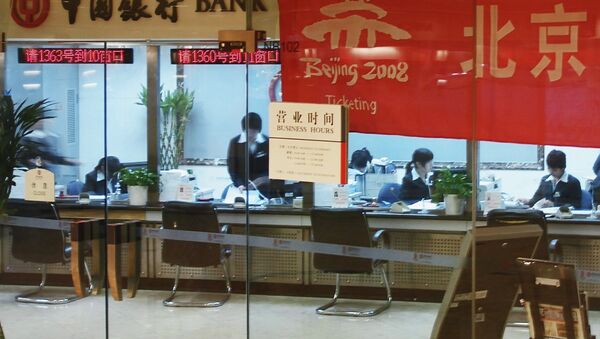MOSCOW, May 27 (RIA Novosti) - The use of home-made servers in Beijing’s national banks may prevent inclusion of hidden backdoors that facilitate intelligence gathering by the US National Security Agency, according to expert in the US-China relations.
Chinese government institutions, including the People’s Bank of China and the Ministry of Finance, are reviewing domestic commercial banks' reliance on IBM servers in an attempt to single out threats to the country’s financial security, Bloomberg reported Tuesday.
“The US government was the first to raise the alarm that hidden ‘backdoor’ could be put on servers to intercept communications to and from the user. It turned out that servers made by American based multinational companies did have such back doors to facilitate intelligence gathering by the NSA,” expert in the US-China relations and CEO of International Strategic Alliances George Koo said.
Speaking about Beijing's decision to replace IBM with domestic equivalents and the negative impact thereof on China or IBM, Koo said that “the use of domestically made servers would presumably prevent inclusion of hidden backdoor and the main fallout is loss of business for IBM.”
Beijing ordered state-owned enterprises to cut ties with the US consulting companies, including McKinsey and Boston Consulting Group, which it accused of feeding commercial secrets to Washington. When asked whether this move meant we were seeing the worsening of the US-China relations, Koo said that “the bilateral relations are not getting any better.”
“I suppose hot and cold diplomacy can be explained as a way to keep China off balance but it sure is not the way to build mutual trust,” the expert said, noting that to really get along the US needs to stop regarding China as an adversary.
“Ideally, the US and China should work together to resolve the major challenges facing the world Right now, the needed mutual trust and confidence is not there,” Koo explained.
Reuters reported Beijing’s move on Monday, saying it targeted US companies with large operations in China and came days after the US Justice Department charged a number of Chinese government officials with cyber espionage.
Beijing earlier warned that it would retaliate if Washington pressed ahead with allegations that Chinese military officers had hacked into US corporations including Alcoa, US Steel and Westinghouse.




